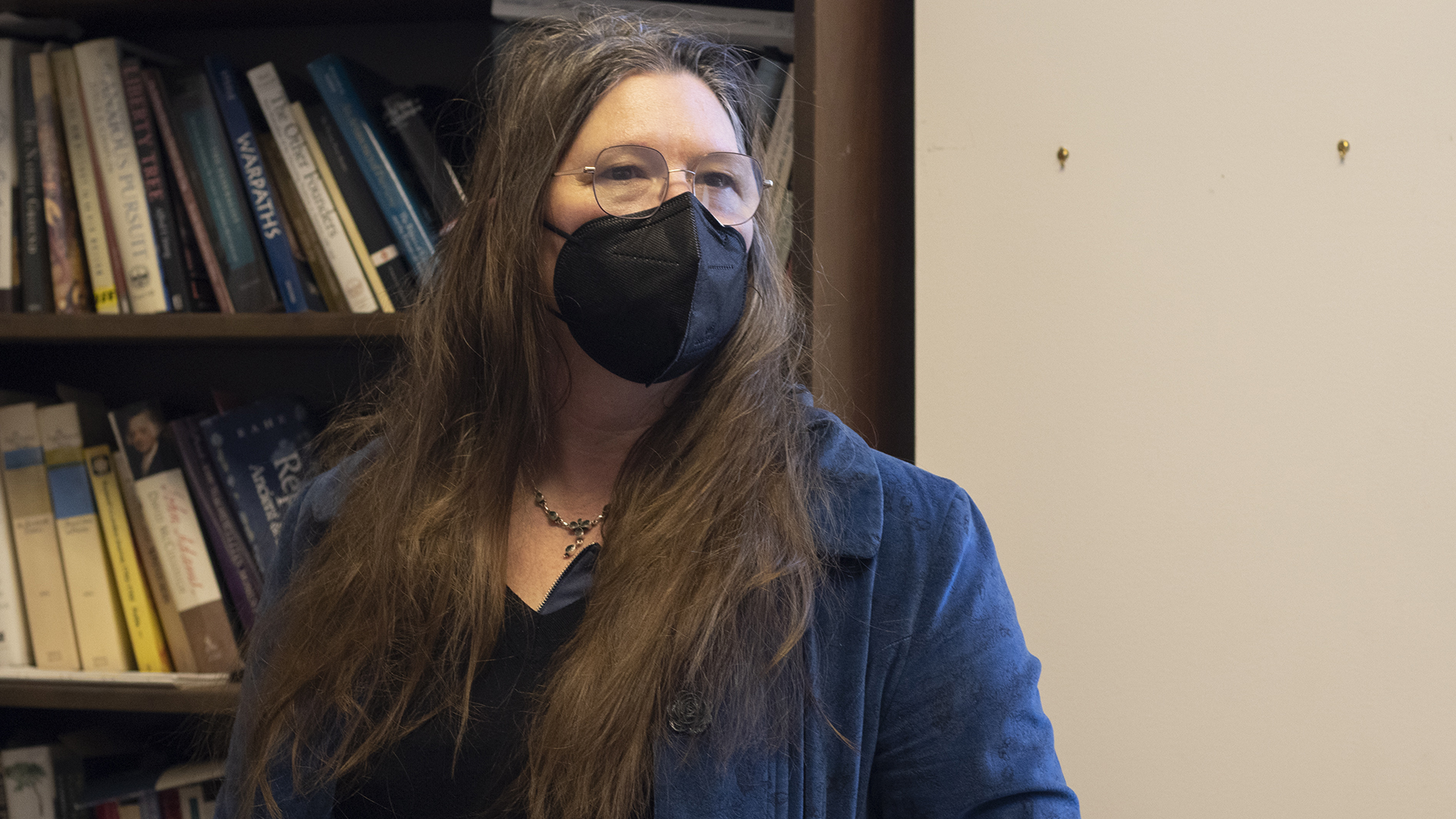Despite the University of Maryland’s announcement the spring 2022 semester will be in person, some university professors are starting the semester online for reasons of their own.
Their decisions came after the university announced the additional measures and requirements in place to curb COVID-19 cases on the campus, including required booster shots for all students, staff and faculty.
Holly Brewer, a history professor and president of the university’s chapter of the American Association of University Professors, said while she wasn’t worried about the semester as a whole, she was worried about COVID-19 in the first week. It’s for this reason she chose to be “extra careful” and have the first week of her HIST 200 class online.
If COVID-19 cases continue to rise in Maryland, she may hold the second week online as well, she wrote in an email to her students.
Brewer said she plays a “crucial role” as a caretaker for her mother in hospice, which was a large part of why she decided to hold her class online for the first week.
“I just thought it would be better to wait and let things settle down a little bit … If I were out of commission with COVID or if I gave it to her, it would be pretty awful,” Brewer said. “She really needs me right now.”
[Your guide to spring COVID-19 policies at UMD]
Brewer’s class also has more than 60 students. She said the fact students may have traveled recently or may not have been able to get a COVID-19 test before the first day of classes only bolstered her need to be cautious as well.
To hold her class online, Brewer had to consult with her department chair, as part of a requirement university Provost Jennifer Rice outlined in a Jan. 15 letter to university staff and faculty.
The letter also said beyond circumstances making instructors unable to attend in person — such as isolation, quarantine, illness or caregiving — professors should offer their classes in the format that they appear in the schedule of classes.
Danuta Hinc, an English professor at this university, is holding the first two weeks of her in-person class online because her students requested it. Hinc said she prefers teaching in person and feels “disconnected” when teaching online, but respects her students for voicing their concerns.
Hinc’s students didn’t want to put their unvaccinated children, elderly parents, spouses or partners that were vaccinated but immunocompromised at any additional risk by attending classes in person for the first two weeks, she said.
“Students are handling the situation extremely well,” Hinc said. “And I feel like everyone is trying to do their best under the very difficult circumstances.”
But not all professors feel comfortable requesting for accomodations, said Karin Rosemblatt, vice president of this university’s chapter of the American Association of University Professors.
[Some UMD professors express dissatisfaction with university’s reopening, testing protocols]
To get permission to temporarily host classes online, professors are asked to disclose their medical information, Rosemblatt said. In doing so, the university is putting professors who do not have tenure, and therefore do not have as much job security, at risk, she said.
“What about if you have someone at home who has a medical issue, right? Or maybe you have issues with child care right now, “ Rosemblatt said. “You don’t necessarily want to go to your boss who’s going to make a decision about whether to renew your contract and say ‘I’m having issues with child care.’”
While non-tenured faculty have always had less job security than tenured faculty, Rosemblatt said, “COVID has just kind of shone a spotlight on something that was kind of already there.”
Brewer said professors without tenure are afraid to speak out. She has tenure and is an endowed chair, but if that wasn’t the case, she said she would feel uncomfortable requesting accommodations.
Brewer said she believes university President Darryll Pines and Provost Rice are doing their best, and she can see they really care. However, they are falling short in some areas.
“I think that they do need to be a little bit more aware of how hard it is for people who do not have permanent positions to speak up, even about small choices, she said.”
CORRECTION: Due to an editing error, a previous version of this story’s subheadline stated professors must get permission from Provost Jennifer Rice to shift classes online. Professors only need to consult their department chair or dean. The subheadline has been updated.



